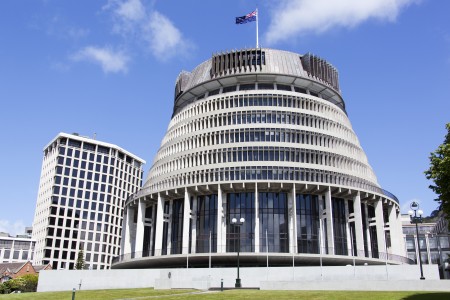Kei te tūrama arotahi
In the spotlight
Law Commission publishes Final Report in Ngā Huarahi Whakatau project
The Law Commission has published its Final Report in its review of adult decision-making capacity law. It makes 175 recommendations for reform of the Protection of Personal and Property Rights Act 1988 and related matters. This completes the Commission’s review of this topic.
Related project
Review of adult decision-making capacity lawNgā mahi o te wā
Current work
Hara ngākau kino
Hate crime
Te Aka Matua o te Ture | Law Commission is reviewing the law relating to hate crime. The review is considering whether there are problems with the current law and, if so, how to make the law better. This could include creating new hate crime offences, as was recommended by the Royal Commission of Inquiry into the terrorist attack on Christchurch masjidain (Muslim places of worship) on 15 March 2019.
Visit projectHaemata Haepapa
Directors’ duties and liabilities
Te Aka Matua o te Ture | Law Commission is reviewing the duties and liabilities of company directors. The Commission is examining the core duties under the Companies Act and the wide range of other statutory provisions under which directors can be liable.

Improving the law since 1987
We have undertaken over 150 law reform projects on a broad range of topics, all aimed at improving the law of Aotearoa New Zealand.

Our work has impact
Most of our reports are implemented either in whole or substantial part. Our publications are cited in parliament, the courts, the news and legal writing, sometimes decades after they are published.

We are independent
Our independence allows us to approach each law reform project with an open mind and to conduct thorough, fair reviews.

Te ao Māori in our work
We take te ao Māori and Māori perspectives into account in our work.

Making the law easier to access and to understand
We play a key role in improving the structure of and access to the legislation of Aotearoa New Zealand.

Our leadership has mana
Respected judges, legal practitioners and academics bring their experience and expertise to law reform as our Commissioners.
Ā mātou kawerongo
Our news
Published: 24 February 2026
Law Commission recommends new legislation to replace the Protection of Personal and Property Rights Act 1988
Our news
Related project:
Review of adult decision-making capacity law
He rongo pāpāho
In the media
Mark Hickford appointed to Law Commission
NZ Government | 15 October 2025


